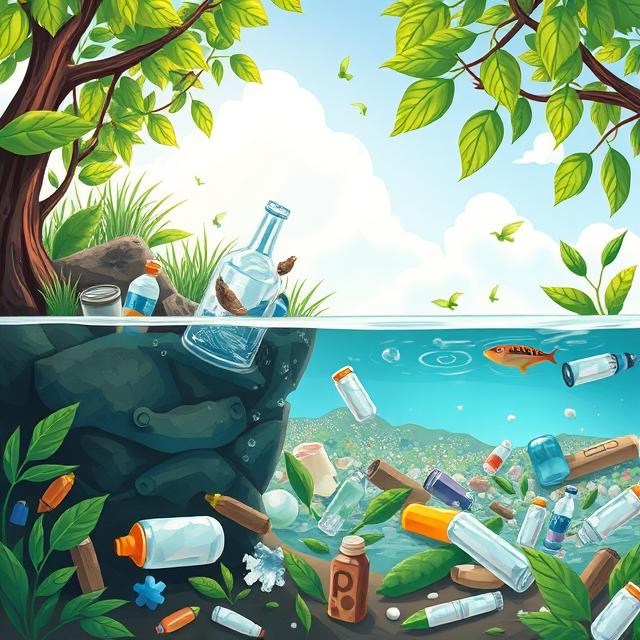As plastic waste keeps piling up at scary speeds worldwide, we need to find eco-friendly options now more than ever. Biodegradable plastics look like a good fix that could cut down on trash and help reduce the harm plastic stuff does to our planet. Let’s dive into what these plastics are how they do their thing, what’s good about them, what problems they face, and how they might help clean up our mess.
1. Getting to Know Biodegradable Plastics
Plastics that break down are a special type of plastic. Unlike regular plastics, which can stick around for hundreds of years, these eco-friendly options decompose much faster. Makers often use renewable stuff like corn starch, sugarcane, or potato starch to create them. The big difference? These plastics turn into harmless compounds when they break down, whether they’re in landfills or out in nature. This makes them a greener choice for things we use every day.
2. How Biodegradable Plastics Help Reduce Pollution
Biodegradable plastics have an impact on cutting down pollution in multiple ways. For one, a lot of these plastics come from plant-based stuff, which means they depend on resources that grow back and use less oil and gas. Also, they break down faster than regular plastics, which helps to stop waste from piling up in dumps and the environment. Because they decompose quicker biodegradable plastics cut down on the long-term harm caused by plastic trash in oceans, rivers, and on land giving a better option for animals and nature.
3. Benefits of Biodegradable Plastics
Lower Carbon Emissions
The manufacture of biodegradable plastics releases less greenhouse gases than conventional plastics, which come from oil-based sources. Using renewable materials like plant starch biodegradable plastics help cut our dependence on fossil fuels and reduce the overall carbon impact, which is key to tackle climate change.
Less Waste in Landfills
A major benefit of biodegradable plastics is their ability to break down over time. Regular plastics can remain in landfills for centuries without decaying adding to harmful waste buildup. Biodegradable plastics however, decompose into natural substances cutting landfill waste and helping to create a cleaner environment.
Safer for Marine Life
Plastic pollution in our oceans has a big impact on sea creatures. Sea animals can eat plastic trash, which can hurt or kill them. Biodegradable plastics when thrown away , break down more in nature. This helps to keep our oceans cleaner and lowers the risks to sea life. Because of this biodegradable plastics are a safer option than regular plastics. Regular plastics can take hundreds of years to break down and keep harming ocean ecosystems.
4. Challenges in Using Biodegradable Plastics
Biodegradable plastics have a lot going for them, but they face some hurdles in becoming used and effective. One big issue is that many of these plastics need special conditions to break down . Take industrial composting facilities, for example. The high heat there is often crucial for these plastics to decompose . If these plastics end up in regular dumps or out in nature without these conditions, they might not break down as they should, which limits how useful they are.
Also biodegradable plastics can cost more than regular plastics, which can make them less attractive to businesses and shoppers. This price gap can stop them from being used everywhere even though they’re better for the environment in the long run.
5. The Future of Biodegradable Plastics and Pollution Reduction
As technology moves forward biodegradable plastics could have a big impact on cutting down pollution and helping our planet stay healthy. To make this happen, we need to put more money into recycling and composting places, get better at managing waste, and teach more people about why biodegradable stuff is good. We also need to keep coming up with new ideas to create cheaper and better biodegradable plastics so more people will use them.
